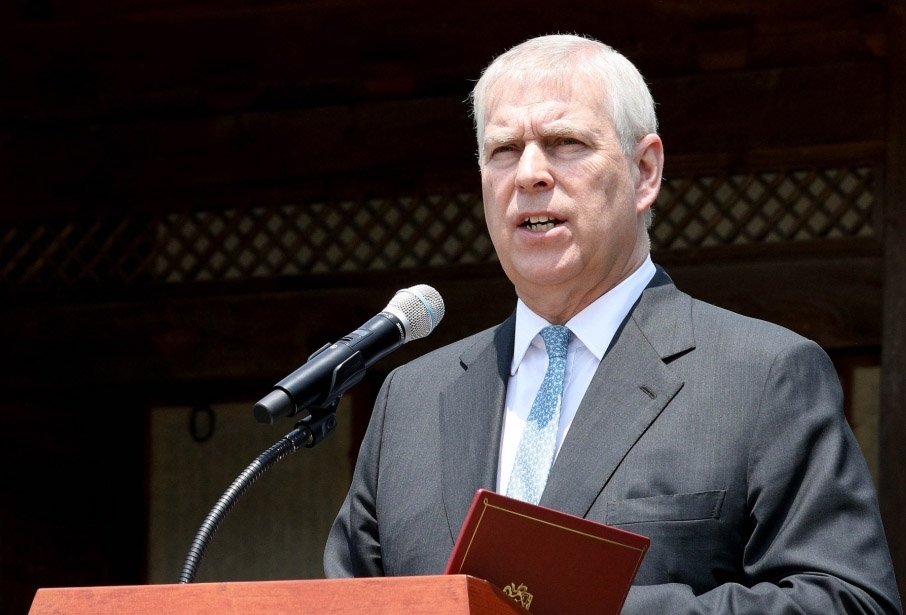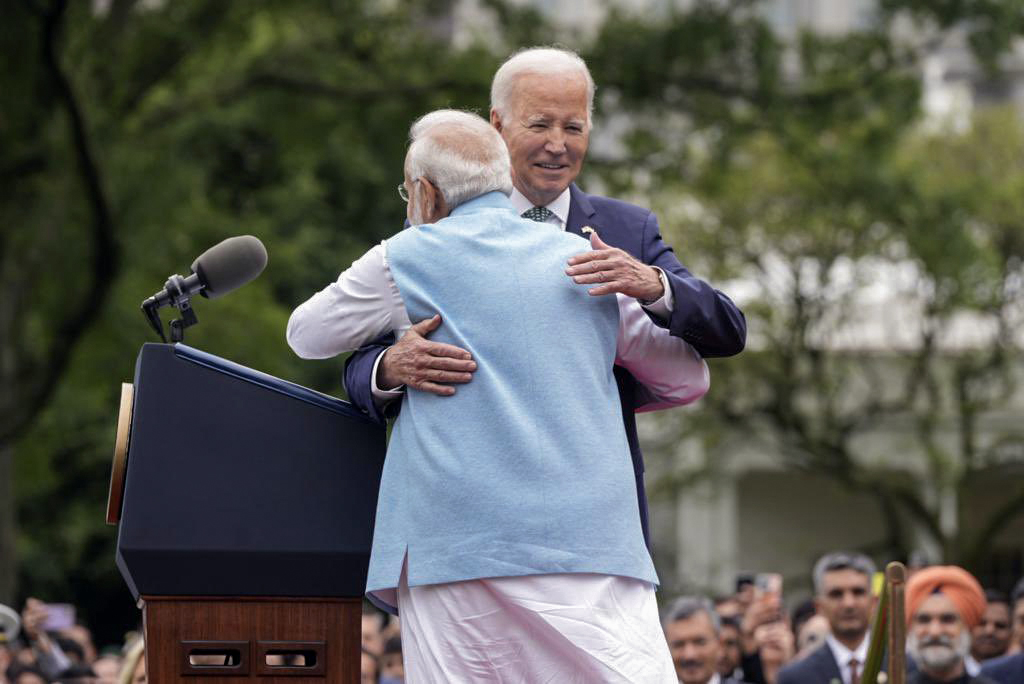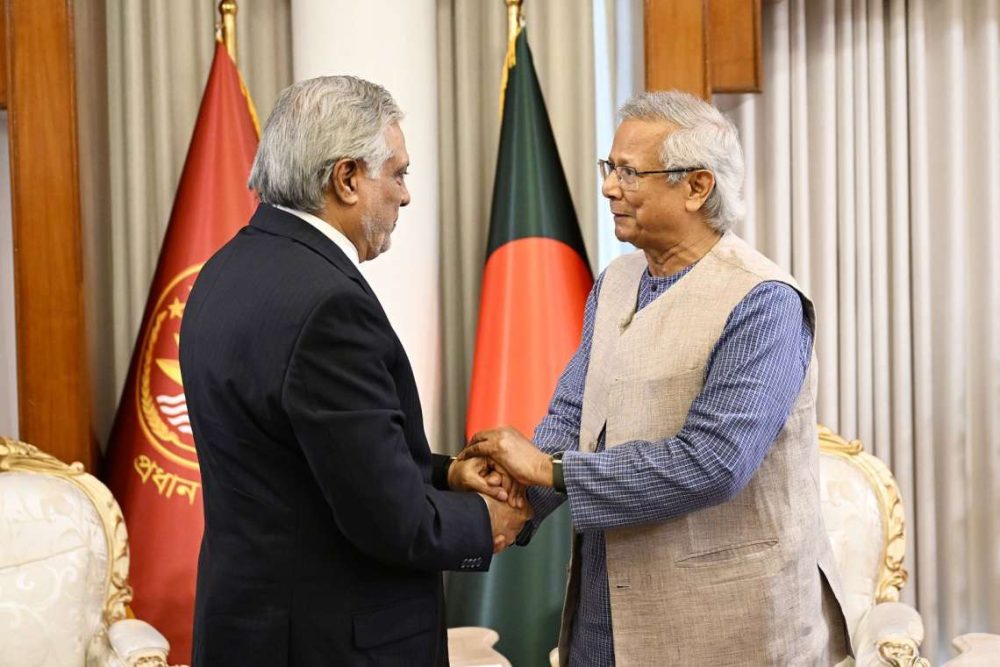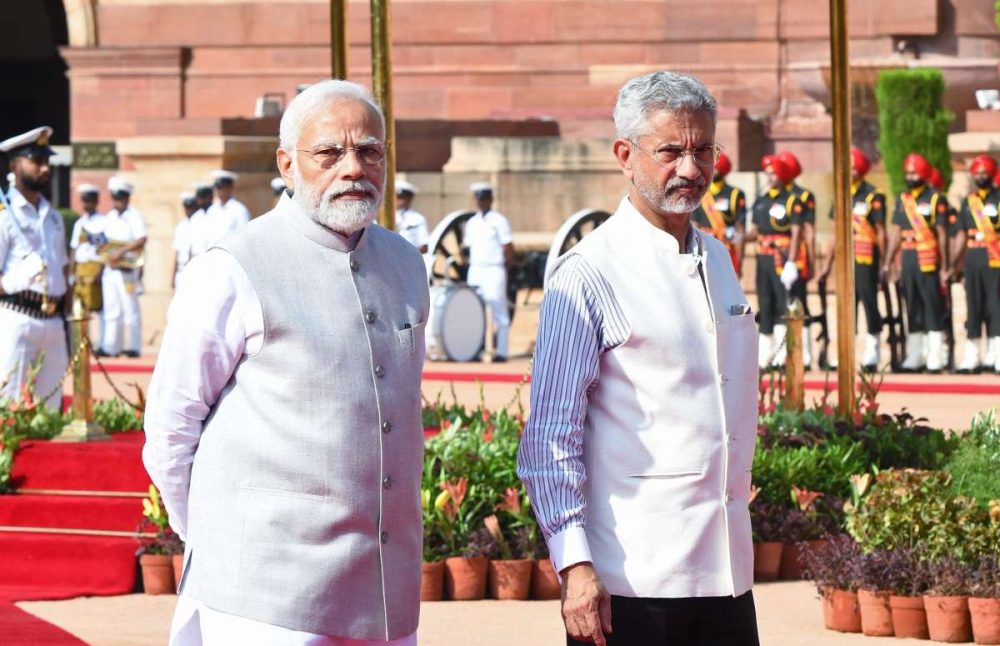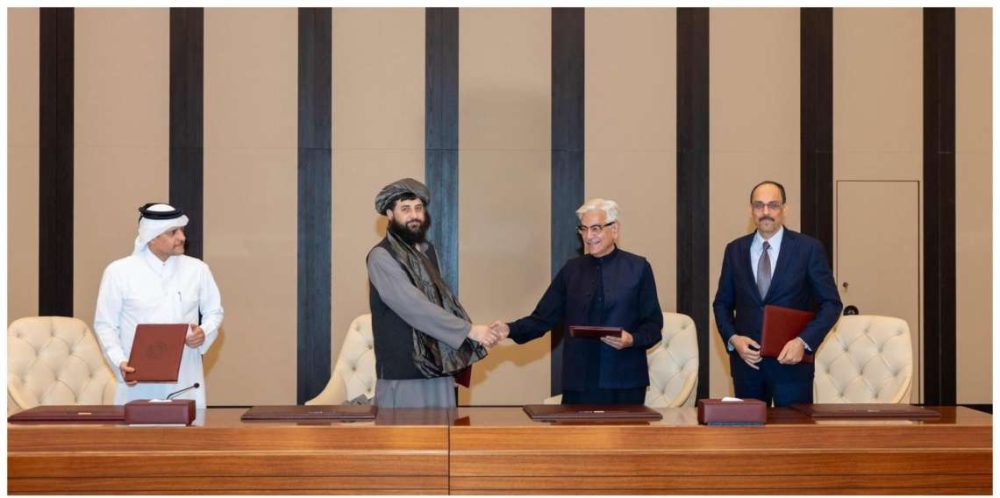Sunak’s intervention came days after official data showed that headline inflation was higher than expected in May, remaining stuck at 8.7 per cent…reports Asian Lite News
Rishi Sunak has warned that high public sector pay rises would be “giving with one hand” and “taking with the other” by fuelling higher inflation, in a sign the government may override the recommendations of independent pay review bodies.
The UK prime minister spoke out in the wake of reports in The Times newspaper that millions of workers faced having recommended pay rises of 6 per cent blocked by ministers over concerns they would fuel inflation.
Sunak’s intervention on Sunday came days after official data showed that headline inflation was higher than expected in May, remaining stuck at 8.7 per cent, while core inflation had risen to a 30-year high of 7.1 per cent.
The prime minister insisted “there isn’t an alternative to stamping out inflation” in an interview on the BBC’s ‘Sunday with Laura Kuenssberg’ programme.
While he acknowledged it was the Bank of England’s prerogative to preside over interest rates, he said it was his responsibility to “manage the government’s borrowing responsibly” in order to curb price rises.
On Thursday the Bank of England raised interest rates more than expected by 0.5 percentage points in an effort to cut inflation, prompting fears that mortgage holders could face higher rates as their fixed deals come to an end.
Sunak urged struggling Britons to hold their “nerve” with interest rate rises, which Liberal Democrat leader Sir Ed Davey branded “patronising advice”.
The prime minister went on to say that public sector pay was a “good example” of an area where the government was at risk of “borrowing too much money”.
“There is no point in me doing something that sounds popular and nice today — for example on public sector pay. I would be giving with one hand and we would just be taking with the other through higher inflation.”
According to The Times, the independent pay review bodies have recommended a 6.5 per cent pay rise for teachers in 2023-24, and a rise of at least 6 per cent for police officers, prison officers and junior doctors, at an estimated cost of more than £5bn.
Any move by ministers to override the recommendations would be controversial after the government last year defended offering below-inflation public sector pay rises by insisting it had followed the pay review bodies’ advice.
It would also risk escalating industrial action, including in a series of sectors — such as education and the health service — where workers are already on strike.
Jon Richards, assistant general secretary of trade union Unison, accused the government of having “spent months hiding behind the NHS pay review body” in the last pay round. He added: “For the prime minister to be pondering blocking the other pay review bodies now is utterly farcical.”
Economists said that raising public sector pay by a large amount would add to the amount of money circulating in the economy and could intensify inflationary pressure. But they added that the government had the power to offset any of these effects with higher taxes.
Jonathan Portes, professor of economics at King’s College London, said that when there are problems of recruitment in the public sector “politicians should listen” to proposals such as “higher wages for NHS/teachers etc balanced with taxes on high-income workers and capital gains”.
His remarks came after John Glen, chief secretary to the Treasury, said that ministers were aware of “the implications for inflation” when deciding whether workers should get pay rises.
He said the work of the independent pay review bodies was “a very significant part of resolving the pay issues”, but stressed it was not the only factor.
He told Sky News that he was “very aware of the massive contribution” made by workers including teachers and nurses make, adding: “We’ve got to get the right outcomes that are fair to them, but also aren’t inflationary”.
Rachel Reeves, Labour’s shadow chancellor, said on Saturday that Labour would negotiate a “fair and affordable” deal with workers, but she failed to rule out blocking public sector pay rises.
A decision on public sector pay for 2023/24 is expected in July before parliament rises for the summer recess.
A government spokesperson said: “We have now received the recommendations from most of the pay review bodies. The government is considering these and will respond in due course.”





